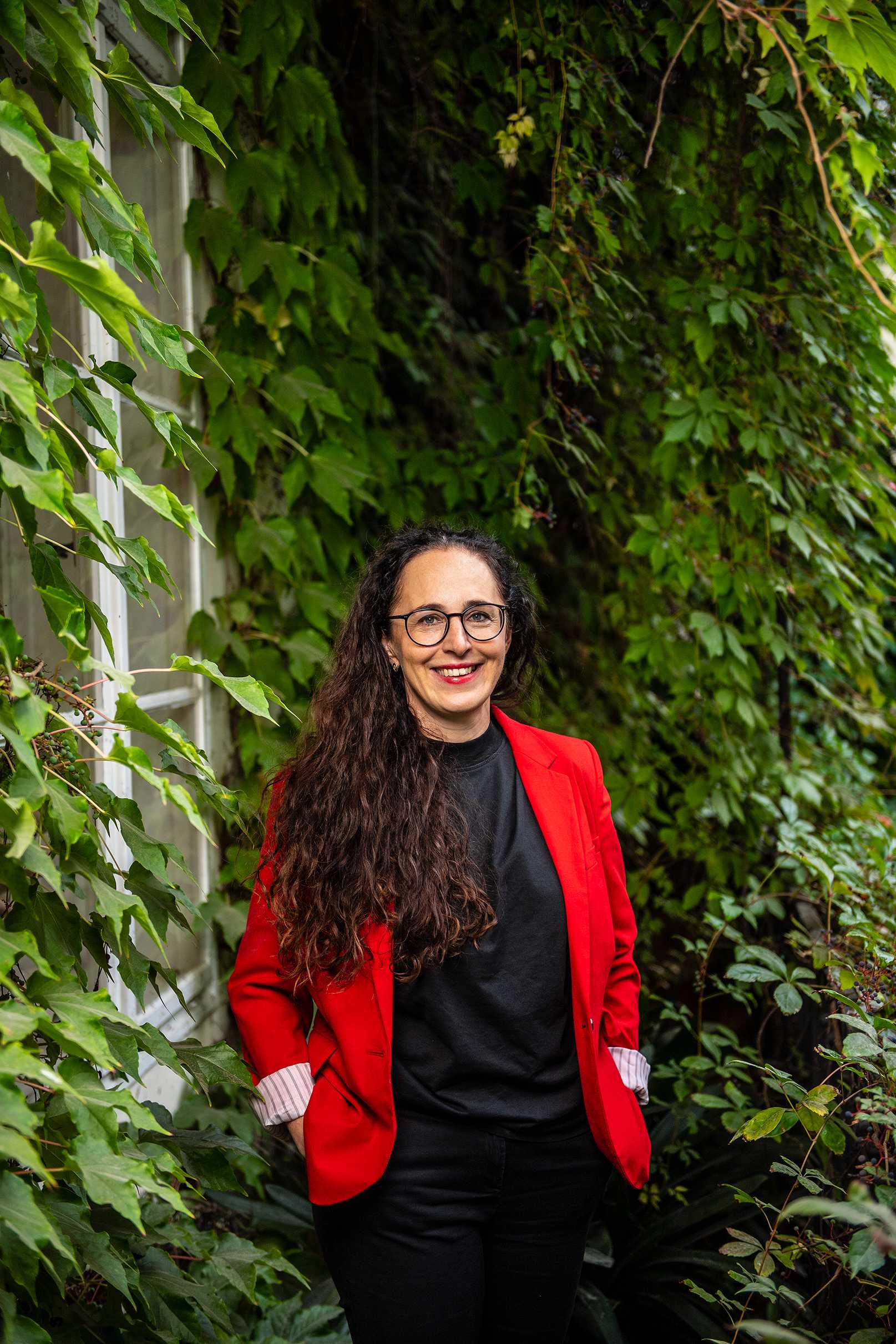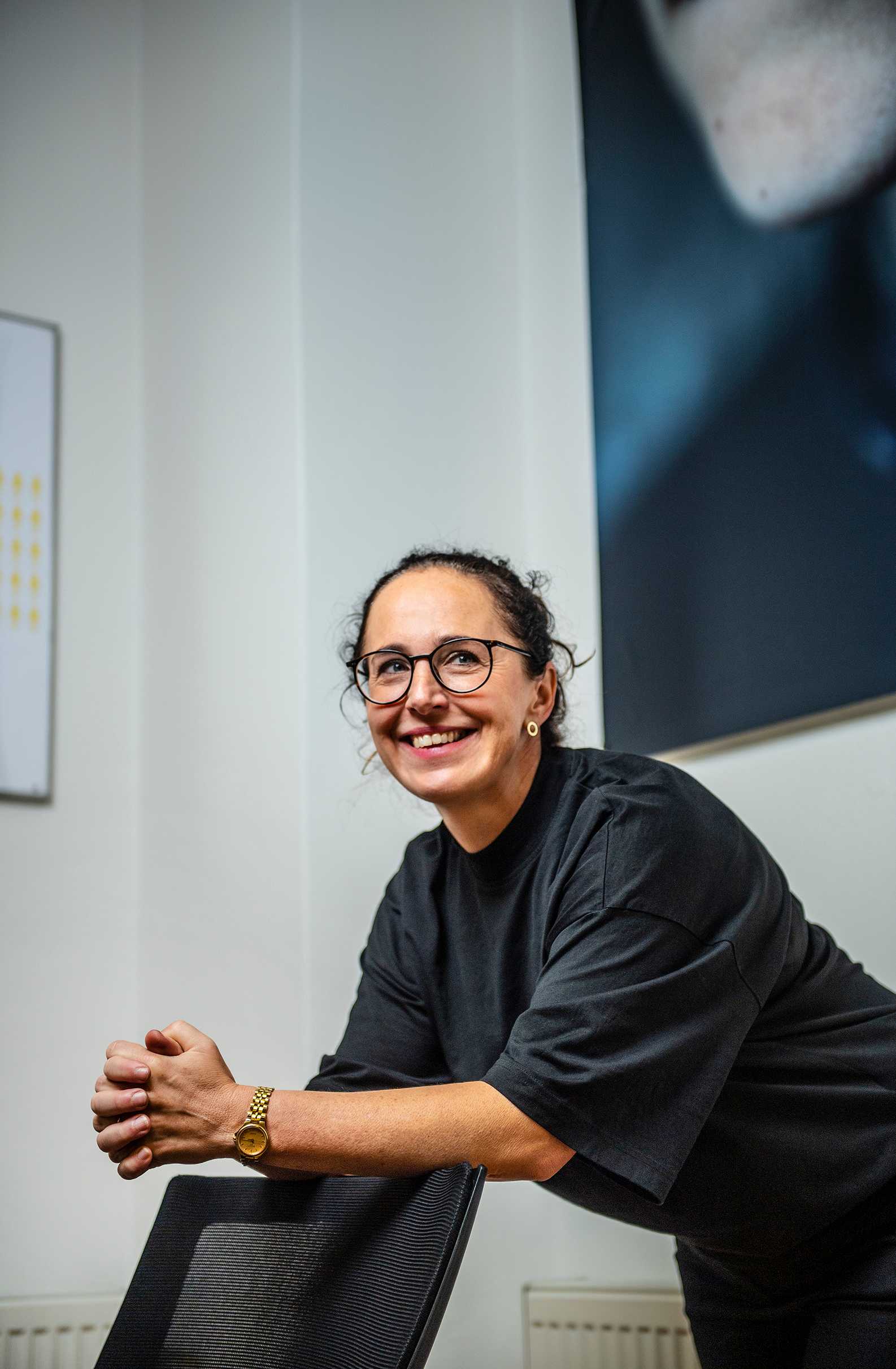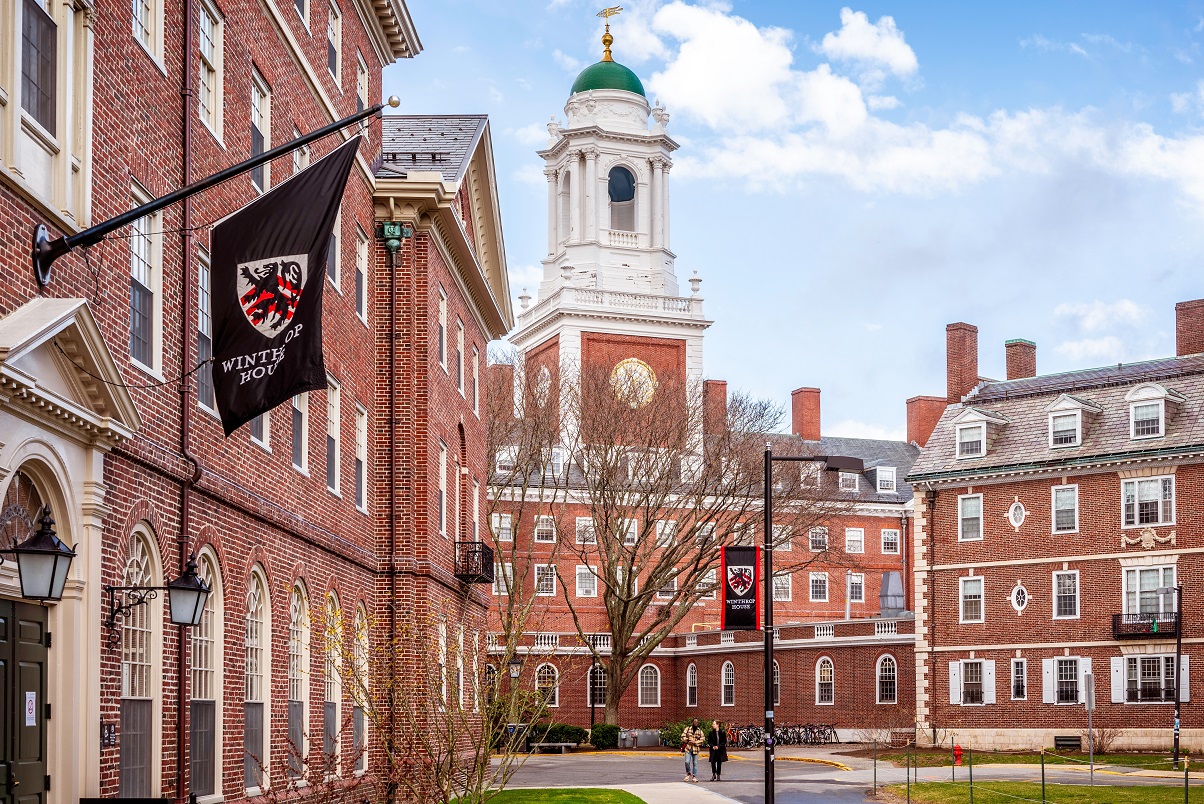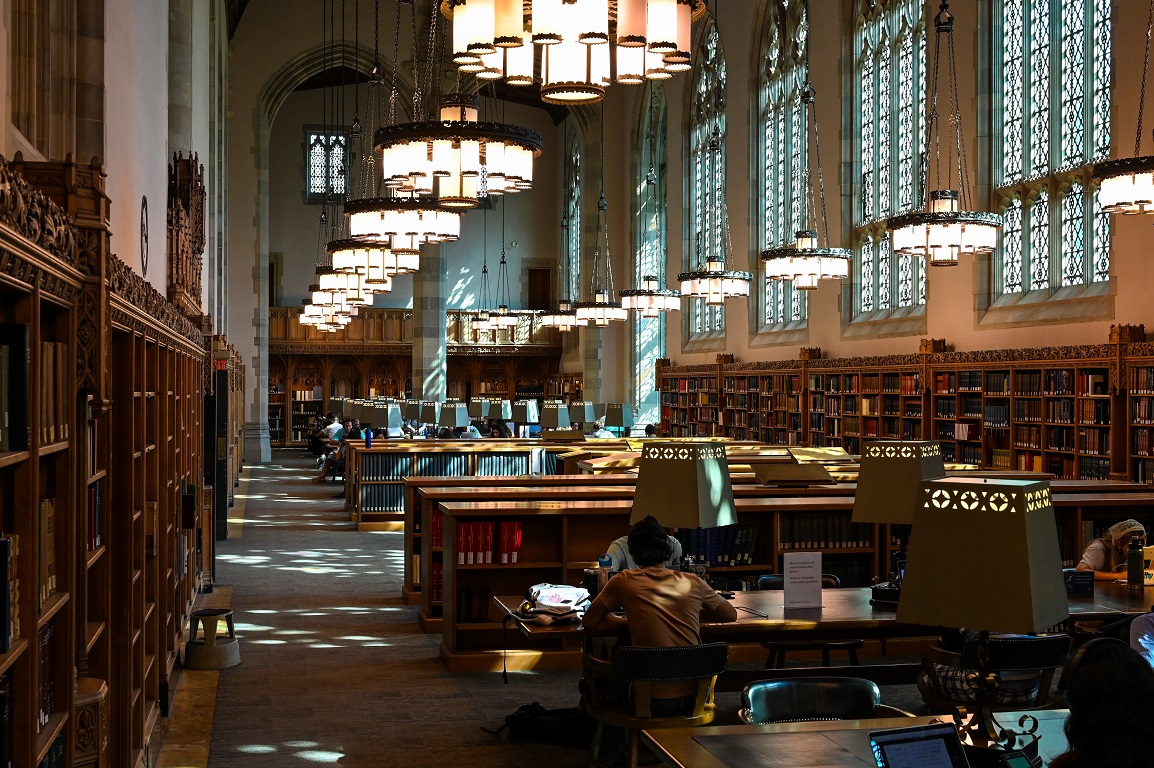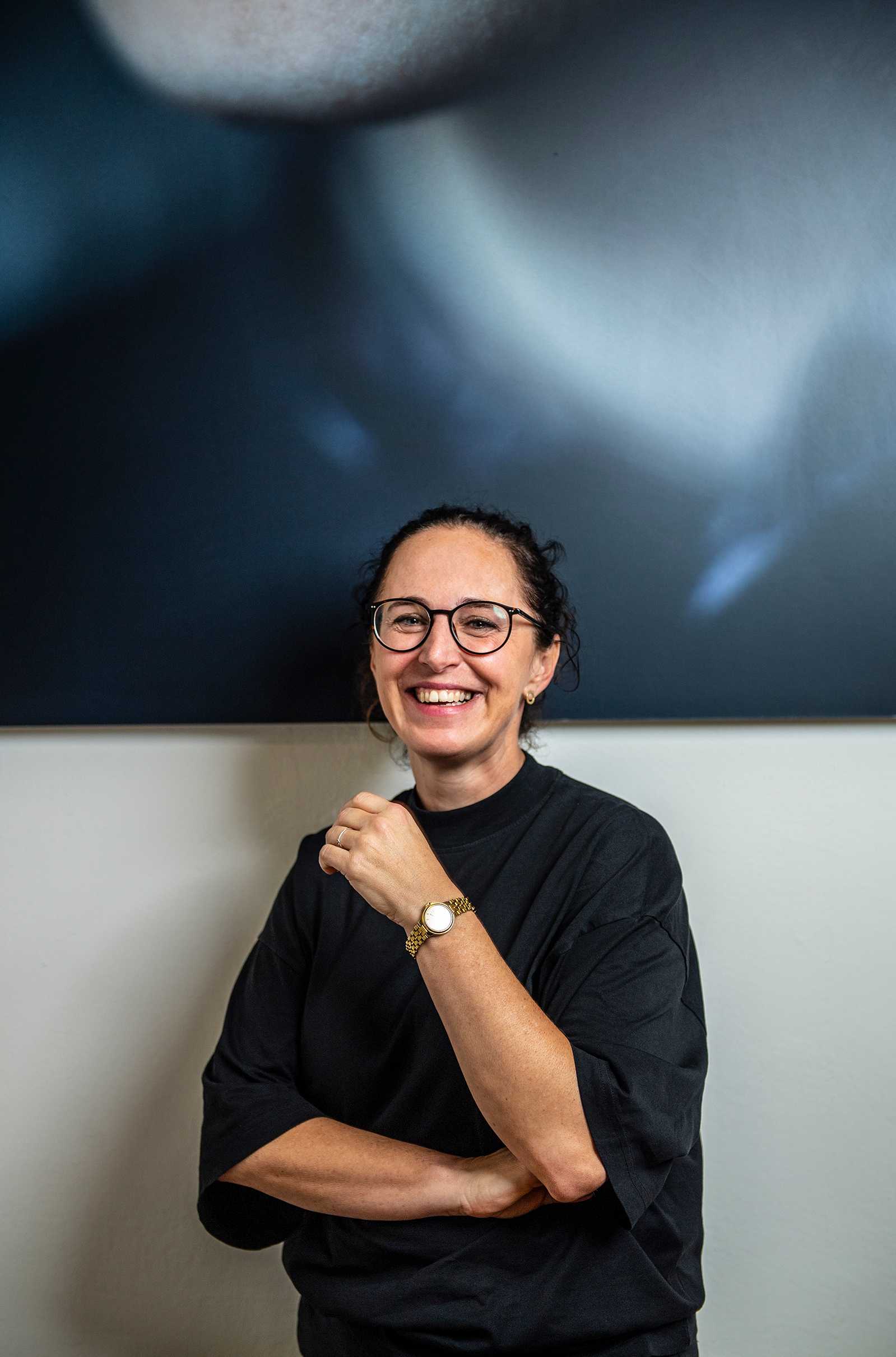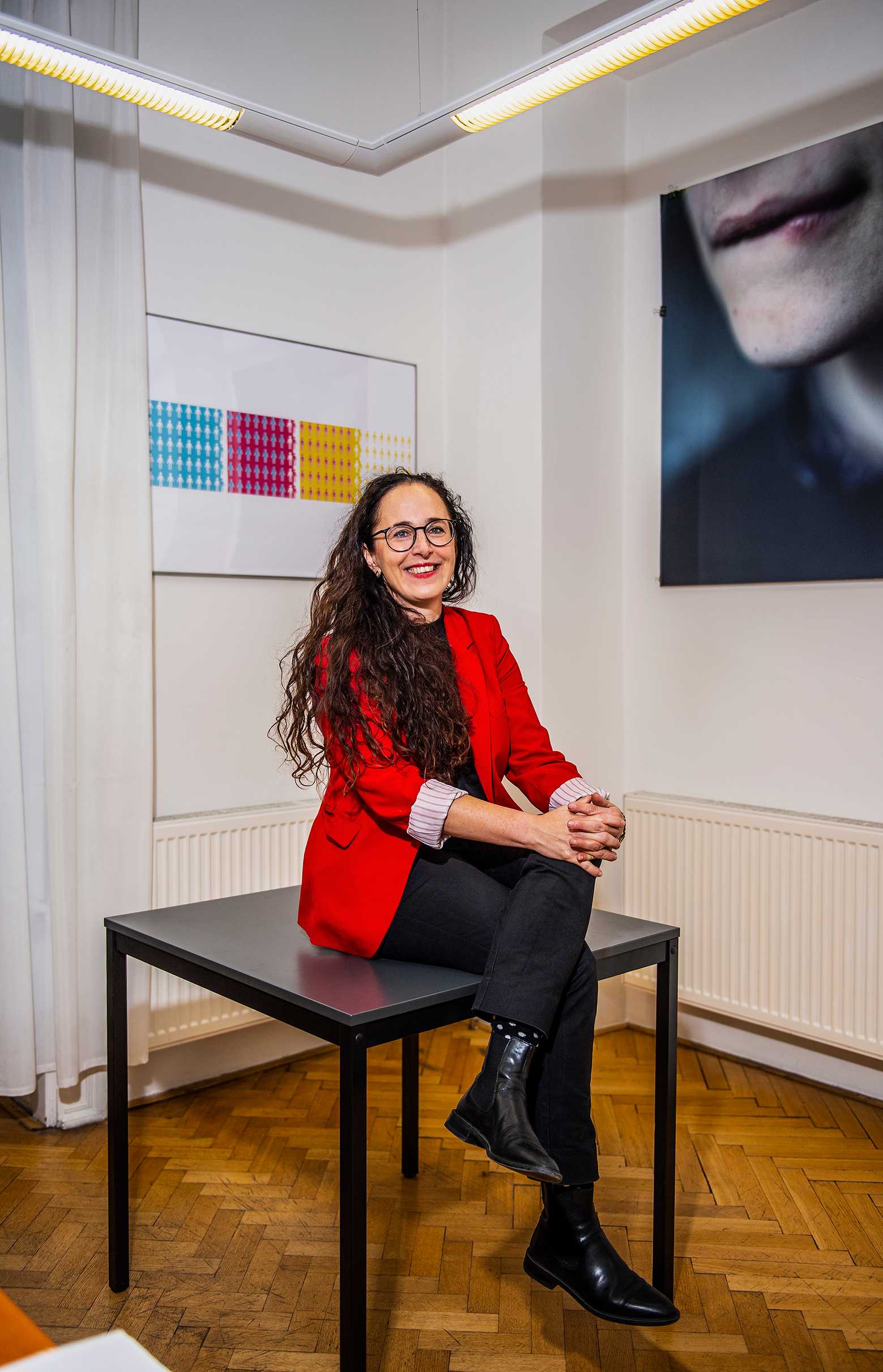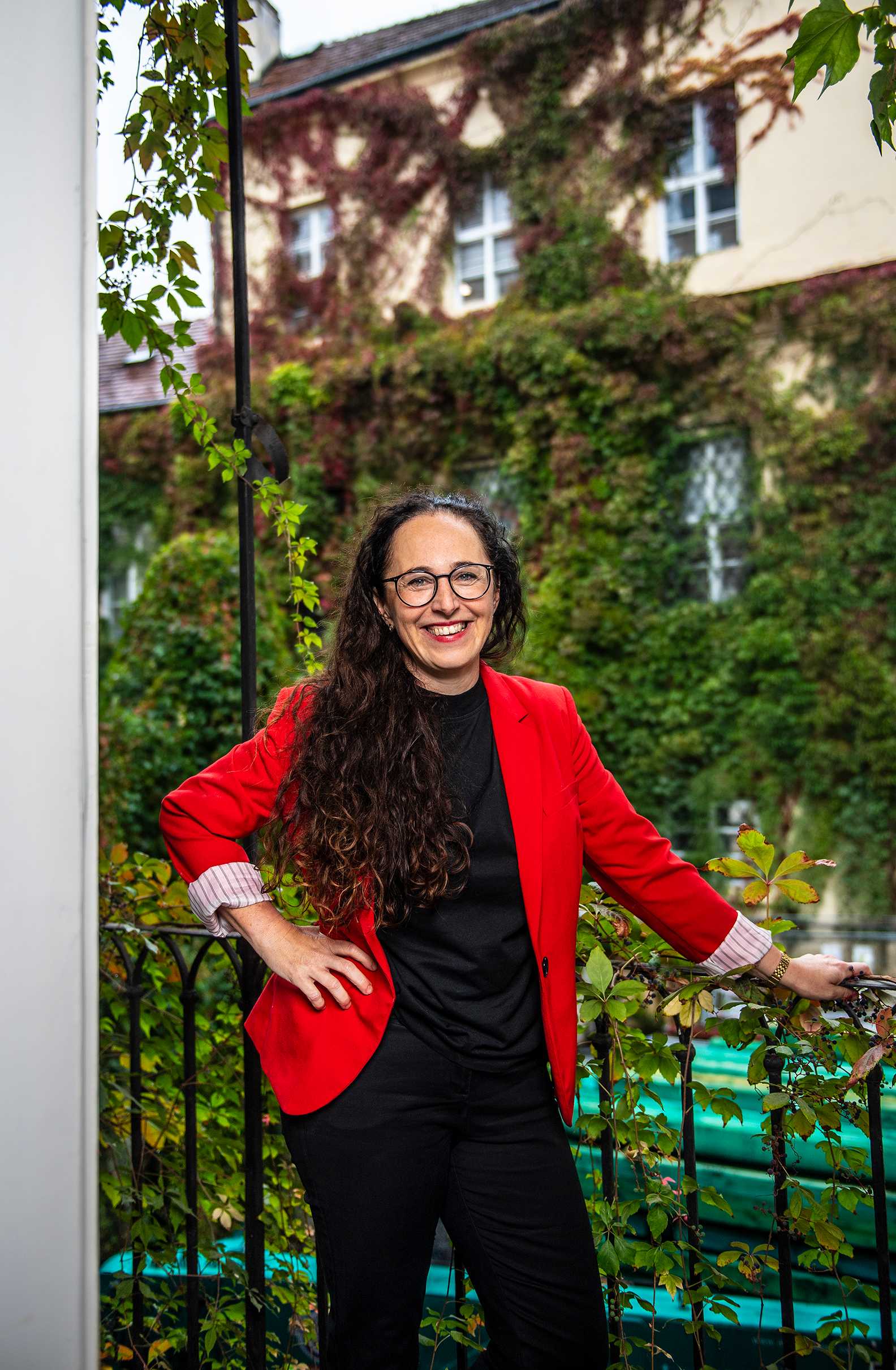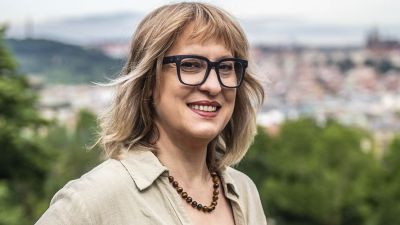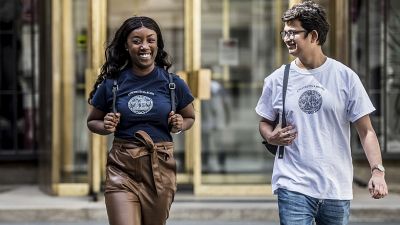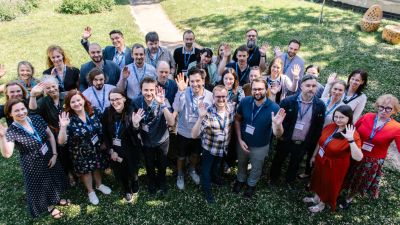She is intimately familiar with American mentality, history, and politics. After all, she has been devoted to the United States since her studies at the Faculty of Social Sciences at Charles University, where she has been teaching American studies for more than fifteen years. For about the same amount of time, she worked at the US Embassy in Prague, where she was involved in public diplomacy. And since August of this year, Jana Sehnálková has been the new Executive Director of the Czech Fulbright Commission, which will celebrate 35 years of activity in the Czech Republic next year.
“My goal is to continue to firmly uphold the values that have long defined the Fulbright Program: quality, equality, mutual understanding, and democratic principles, thus building on the values that Hana Ripková, together with the entire team, nurtured throughout her tenure at the Commission,” Jana Sehnálková stated in a press release upon her appointment. She told UK Forum magazine what it is like to lead this organization during the Trump administration, how many students and academics from Charles University are participating in the programs, and she also recommends how to proceed when applying, because a Fulbright scholarship in the United States can literally change the lives of successful applicants – and bring great contacts and opportunities for further professional and personal development.
Congratulations on your appointment as Executive Director of the Fulbright Commission in the Czech Republic. It is a great responsibility, especially considering that your predecessor, Hana Ripková, served as director for thirty years… What are your priorities and key objectives in your new role? What do you want to represent in particular?
I believe that the Fulbright Commission has always been perceived as an institution that provides prestigious scholarships to Czech scientists and students and, at the same time, contributes to the internationalization of Czech universities and research institutes by bringing American scientists to the Czech Republic, whether as teachers or researchers. Thanks to our scholarships, Czech academics have the opportunity to travel to the United States, whether to work on their research projects, study, or learn new teaching methods. The primary priority is to maintain academic excellence.
Another important goal in these relatively turbulent times is to ensure stability and protect academic freedom. I would like our program to be seen not only in the context of large universities such as Charles University, but also regional universities in the Czech Republic. Fulbright should be understood mainly as an open and flexible program that can advance students and academics professionally, develop their personal and professional potential, and enable them to build strong international ties and cooperation.
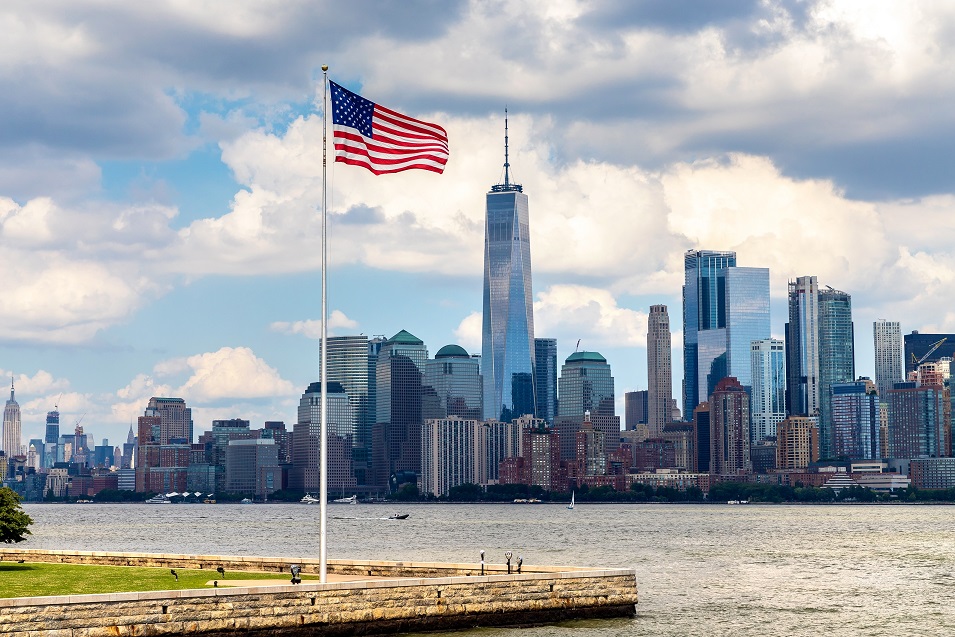
The United States – like its flagship Manhattan in New York – has always been, and continues to be, a magnet for talented people from all over the world, including Czechs and Slovaks.
Fulbright Commission scholarships are highly competitive and prestigious. What are the chances that an applicant – a student or academic – will be successful and travel to the US?
According to long-term statistics, it is roughly one in three or four candidates. So, I think the chances of success are relatively high. I would be very happy if more people applied for the programs, even though this would, of course, change the ratio. However, a properly prepared and well-developed project is always a fundamental prerequisite for success.
Would you say that nowadays it is mainly truly determined and talented people who apply for programs – and thus compete for your scholarships – and who have the qualities necessary to receive a scholarship?
Definitely. I’ve only been here for two months, but based on the feedback I’ve received, Czech scholarship candidates are very competent and achieve excellent academic results. A lot has changed over the past thirty-five years. Candidates are at least on the same level as American academics who apply for scholarships in Czechia. That’s great news for Czech science.
You are a respected American studies scholar yourself, teaching at Charles University’s Faculty of Social Sciences, but you also worked at the US Embassy in Prague. Did you receive a Fulbright scholarship yourself?
No (laughs). I couldn’t, because I was working at the embassy at the time, which automatically “disqualified” me. However, I did study in the United States in high school, so I do have some experience. Later, thanks to another scholarship, I studied in Taiwan for two years, where I focused directly on U.S.–Taiwan relations. But even in my position at the embassy, I worked closely with the Fulbright Commission.
What would you recommend to students, doctoral candidates, and academics at Charles University? Which Fulbright programs can they apply for, and how should they apply?
I definitely recommend starting on our website www.fulbright.gov.cz and checking out what we offer. We offer not only traditional scholarships that work globally, but we also have specific Czech programs, such as the Fulbright-Masaryk Scholarship. It is intended for those academics who are involved in public life; the range of such activities is extremely broad, from science popularisation through leading scout troops to community activities. The program has been running for twenty-five years and is internationally prestigious, as the U.S. government only rarely approves so-called “hyphenated programs,” where another name is added to the title. The Fulbright-Masaryk scholarship is fully funded by the Czech side, serving as a great showcase for Czechia, and we believe that it will continue successfully in the future.
Do you have any statistics on how many scholarships were awarded to Czech applicants in total?
There are a total of 1,268 scholarship recipients from the Czech Republic and 1,158 scholarship recipients from the US, for a total of around 2,500 people. If we add family members to that, we get more than 3,000 people who make up the “Fulbright family.”
This is over three decades. Has cooperation with the Czech Republic been ongoing since approximately 1991?
That’s correct. The international treaty that established the Commission in its fully functional form was signed in 1991 and then renewed in 2002.
Do you have a record of how many scholarship recipients came directly from us, i.e., from Charles University?
I can’t give you the exact number for all those years, but six scholarship recipients will be traveling to the United States this academic year. They are Petr Adámek (Third Faculty of Medicine), Martin Hůla (Faculty of Science), Martin Laryš (Faculty of Social Sciences), Eliška Přítulová (Faculty of Science), Štěpán Raška (Faculty of Arts), and Vít Škrhák (Faculty of Mathematics and Physics).
Conversely, four scholarship recipients will be coming to Charles University from the United States this year: Kennan Ferguson and Sherry Maykrantz, both to the Faculty of Social Sciences, and Jesse Garrett-Larsen and Robert Moucha, who will both be heading to the Faculty of Science.
Particularly appealing to students are the famous Ivy League universities: on the left, the brick buildings of Harvard; on the right, one of the study rooms at Yale University.
I read in The New York Times in mid-June that a dozen people from the Foreign Fulbright Scholarship Board in the US had resigned because, according to them, there had been political interference and perhaps even vetting of academics by the Trump administration… What were and are the further developments?
I wasn’t in office at the time yet, but I know that twelve of the thirteen board members resigned and one remained. Thanks to her, the program continues, because this member ultimately approves projects and thus enables their implementation. The Foreign Fulbright Scholarship Board is a body appointed directly by the U.S. president, and it is expected that the White House will soon appoint new members.
I see. So, Fulbright continues to operate as usual in Czechia?
Yes, as usual. We have applications open for the 2026/2027 academic year. I recommend that those interested not only follow our website, but also participate in webinars and even take advantage of personal counselling. The professional consultations provided by my colleagues can significantly enhance the quality of an application, facilitating its processing and the applicants’ success.
I have heard from scientists that experts from the United States are increasingly applying for various positions in the Czech Republic, for example, in the field of life sciences and similar areas. They are looking for opportunities in Europe more often…
We are waiting to see whether this trend will continue and whether we will have more applicants from the United States to the Czech Republic. But in general, the number of applicants for places in Europe is indeed growing. I have spoken with colleagues from other (European) commissions, who confirm increased interest in Fulbright scholarships among Americans. This is good news for us – we are getting excellent minds and capable individuals who can share their experience, skills, and knowledge. At the same time, this is also related to the structure of the American system – obtaining research funding is a complicated process there, while Europe can offer opportunities that the United States currently does not.
Can you say which fields scholarship applicants come from most often – undergraduate students, doctoral students, academics? Is it more often the natural sciences, medicine, or the humanities?
That varies from cycle to cycle; it’s impossible to say in general terms. Sometimes life sciences are dominant, other times it’s the humanities. We deliberately leave Fulbright scholarships as open as possible in terms of fields of study and choice of American institution. When I look at this year’s group of Czech scholarship recipients, there are fields such as civil engineering, biology, computer science, law, neuroscience, psychology, physics, and international relations… It is the quality of the project that counts, regardless of the discipline.
And how many of them will be going to the United States in total?
Thirty scholarship recipients are traveling from the Czech Republic this year. Six are from Charles University, as I mentioned.
And what about American scholarship recipients who come to the Czech Republic with Fulbright?
There is also a lot of variety there. This year, for example, we will have a doctor specializing in women’s health, as well as experts in geology, healthcare, education, and even a specialist in nuclear technology. We are also happy to welcome Czech studies students – this year we have an American student of Czech studies who is interested in Karel Havlíček Borovský and Milan Kundera. If you are interested in learning more about our scholarship recipients, you can view detailed booklets on our website.
You are still active at the Faculty of Social Sciences at Charles University, teaching in Jinonice. How do you manage to combine leading the Fulbright Commission with teaching? Both are considerable responsibilities.
Teaching gives me tremendous energy. It may sound strange, but I actually go to school to “relax” mentally. I supervise theses and teach courses, but it’s a different kind of work. I’ve always appreciated that even though I worked at the U.S. Embassy in Prague, I remained connected to my original field. You never stop learning – not only through literature, but also through contact with students. For example, I am fascinated by how our students’ perception of the United States is changing. For me, it has always been a great combination: having both practical and theoretical experience. In addition, my home faculty has always been very accommodating; I was able to teach courses in the afternoon after work, which suited me, but I’m not sure if my students appreciated it as much (laughs).
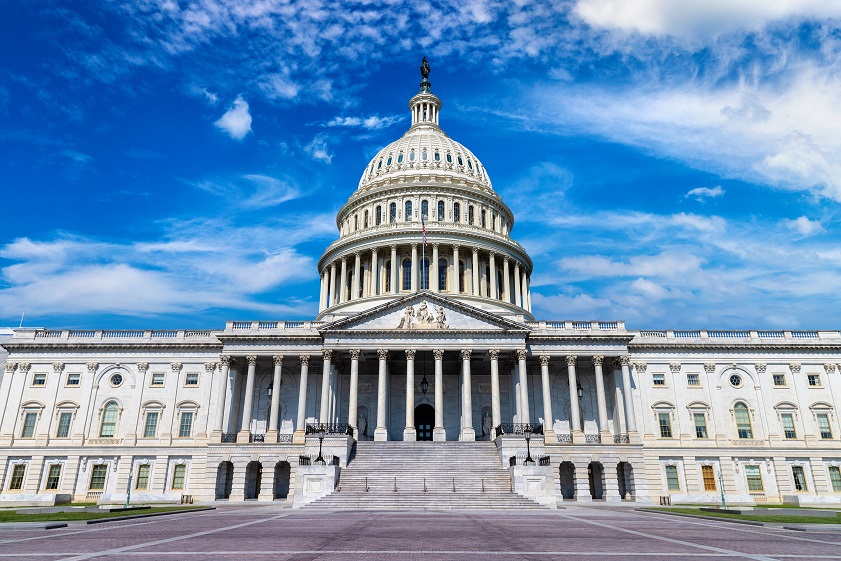
“I am teaching a course on the American political system. I will probably have to rewrite the syllabus a little to take the latest developments into account,” says Jana Sehnálková.
What are you teaching now?
This semester, I am teaching a course on the American political system, which is very interesting at the moment. I will probably have to rewrite the syllabus a little to take the latest developments into account… For example, we are looking at how the well-known system of checks and balances works and does not work – it has always been a cornerstone of the American system, but recently it has become somewhat “derailed.” I also teach the history of Chinese–American relations, where we discuss the role of Taiwan.
Do you have any PhD or graduate students at the faculty?
I will only have bachelor’s and master’s theses. The students write excellent, interesting pieces. For example, I am supervising a thesis on Taiwan’s soft power vis-à-vis the Philippines and another on residential segregation in Philadelphia. But students write on a variety of topics, such as reproductive health in the United States and so on.
As you have already hinted, it must be fascinating to combine academic work and theory with practical experience at the U.S. Embassy, right? What was your agenda there?
I worked in the public diplomacy department, so we were responsible for various grants. We organized communication, arranged a variety of visits – for example, to universities outside Prague – and collaborated with schools at all levels. It was a broad portfolio. But it was always interesting to see how policy from Washington was gradually transferred to the Czech Republic.
Now, let me ask you a more general question. Fulbright scholarships are a great instrument – you connect the world, smart people together, by networking… Similar to how the Germans have the Humboldt Foundation. But will America continue with this “soft influence”? I’m also thinking of various press trips for journalists who travel around America, visit here and there, see the country, then return home and establish a sort of “alliance” here. Will this continue, or is America withdrawing from this kind of soft power? What do you say to that – as an Americanist?
That’s an excellent question. Personally, I am curious about this because it seems to me that the United States is now withdrawing itself from the world – and the current administration isn’t particularly interested in the world outside the United States. But that doesn’t mean it will be the same in a year’s time. In the short term, as part of the argument to voters within the United States and in the context of the national security strategy that we are all anticipating – because it sets a certain tone and direction –, we will probably see that.
But the Trump administration has not yet released it, and we hope they will release it sometime in autumn. That will be an indicator of what role the United States will play in the world… But that doesn’t mean that in a year, after the midterm elections in 2026, or in three and a half years during the presidential elections, it will be the same. From a longer-term perspective, American politics oscillates between isolationist withdrawal and globalist engagement. My hope is that it will somehow balance out again (smiles).
That’s probably a dissertation topic! How did you actually get into American Studies and the Faculty of Social Sciences at CU? You already studied in America in high school, so did your interest start there?
Yes, I received a scholarship from the Open Society Fund. I spent six months on Vashon Island, which is in Puget Sound, a bay near Seattle, Washington. I was fascinated by the country, so I decided to pursue that path. Additionally, I attended the Hejčín Grammar School in English…
You’re from Olomouc?
I am from Přerov, but I studied at the Hejčín grammar school in Olomouc. Almost all of our lessons were taught in English, which naturally led me to American studies. I wanted to learn even more about that country. In the 1990s, when I left, America was a fascinating country for many people in Czechia, who partly looked up to it. I wanted to gain a critical perspective, so I started studying it. And I’m glad I did, because I feel that many trends – whether positive or negative – appear in America first. So, we can draw inspiration from that, and take steps to perhaps mitigate the effects of phenomena that are being intensively addressed in the United States.
I can’t help but ask – when you were in the Washington area, what impression did the local First Nations, the Haida, Tlingit, and Kwakiutl communities, make on you? Anthropologists often write about the revitalization of local art and Native Americans… Did you see anything like that back then already?
Back in the 70s and 80s, a community of hippies moved to the area where I lived, wanting to “escape civilization.” Many people there were very connected to nature; they dealt with various issues related to the indigenous peoples of America, but I didn’t pay much attention to that at the time. Of course, I met some of them, and there were places on the islands with clear signs of indigenous culture – traditional totem poles, for example. But I never came into direct contact with it.
When teaching students U.S. history, do you start with 1776 and independence?
My colleague at CU SOC and I have divided it up between us. She covers the period from Columbus to the Civil War, and I take over from the Civil War onwards. But I also lead seminars on earlier history. For example, I currently have a seminar called “Founding of the Nation,” which focuses primarily on the year 1776, as you asked.
By the way, it will be interesting to see how next year’s celebration of the 250th anniversary of the Declaration of Independence will unfold. For Americanists, it is also important to follow developments before 1776 – the interaction between the colonists and the indigenous peoples, which is a sad story in places, and then the formation of the colonies and states. This also gave rise to the phenomenon of decentralized politics, where states have a certain degree of autonomy and retain intense control over certain matters – which continues to this day.
What did your studies at CU SOC actually give you?
Well, I studied American Studies directly. The Faculty of Social Sciences at Charles University is an excellent institution. I am proud of it because it provided me with a wealth of knowledge, skills, and an impressive array of soft skills. In addition, it has an amazingly strong network of people with whom I have been working for a long time. There’s an enormous social capital here, especially for someone who came to Prague from Přerov. It’s a joy to know that wherever I look, I’ll always find someone who is a graduate of the Faculty of Social Sciences, and these people are also proud of their affiliation. And I am so glad I went there to study.
Since you mentioned graduates, can you name some of your classmates?
Many of my classmates stayed at CU SOC and teach there, which is great. Among American studies graduates, I would mention Radek Špicar, who is Vice-President of the Confederation of Industry of the Czech Republic, and Jakub Klepal, Executive Director of Forum 2000. Martin Jonáš from Czech Television (and now Seznam Zprávy) also studied American studies, although he later focused mainly on Germany.
And what about Fulbright alumni?
There are also a number of them, including academic “leaders.” We even have several rectors among them – for example, Milena Králíčková from Charles University, who attended Harvard Medical School, English and American Studies scholar Petr Kopecký from the University of Ostrava, and physician Martin Bareš from Masaryk University. And Michal Pěchouček from the Czech Technical University is also one of “ours.”
It’s an incredibly interesting group of people. You can see and hear our graduates in the media as leading experts, and you’ll find them in high positions in international politics, such as ambassadors and senior officials at NATO, among others. During the pandemic, for example, our alumni from the Technical University of Liberec developed nanotextiles that were then used to sew affordable face masks on a mass scale, and we can find many other examples. In general, I think we can say that our alumni are visible and not afraid to get involved in both academic and public life.
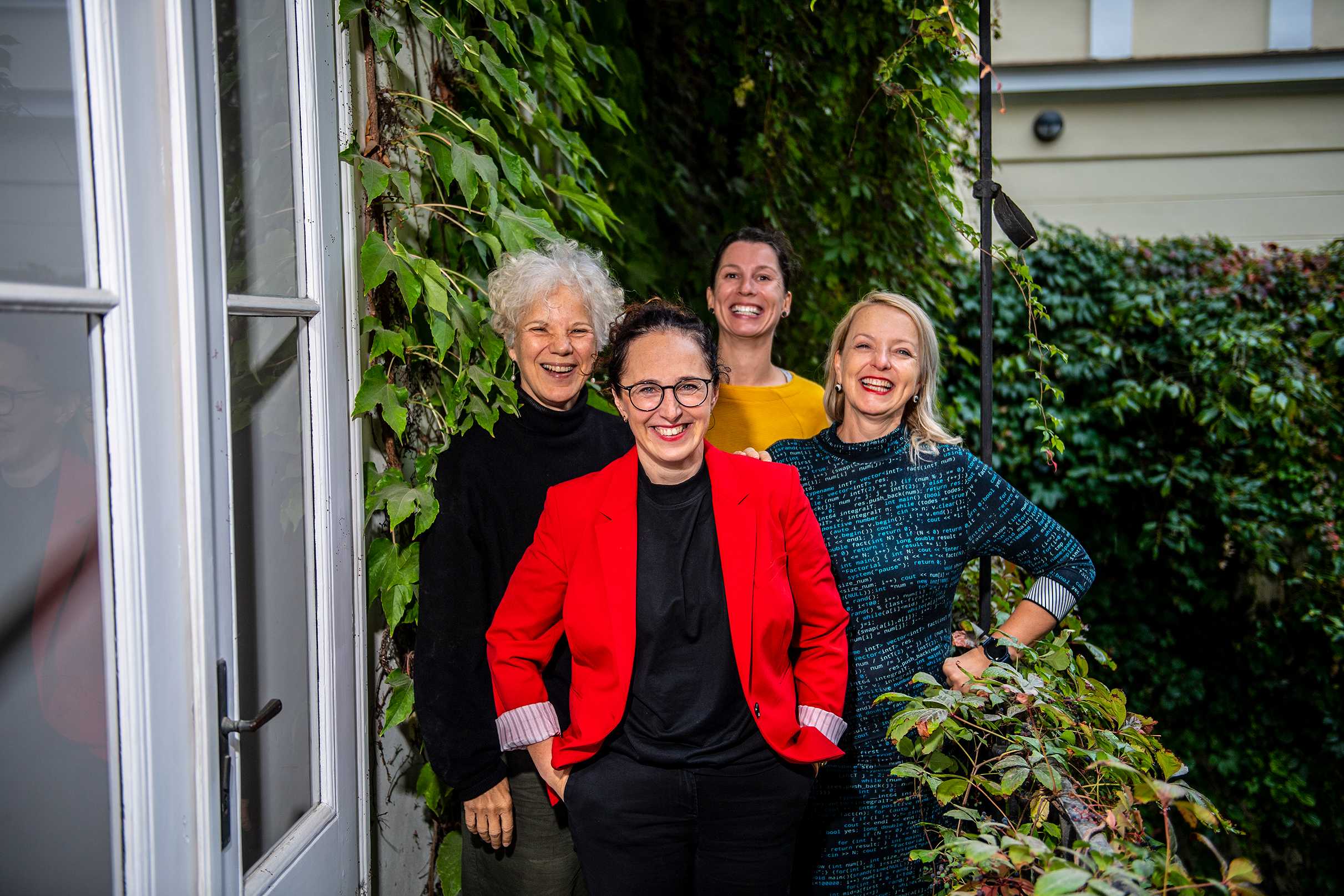
“It's an immensely valuable experience well worth having. My colleagues are happy to advise you, so there's nothing to worry about,” encourages director Jana Sehnálková (front center).
Do your alumni stick together? Do you organize joint events?
We do try to organize an event for our alumni at least once a year. We’d like to come up with some activities that would be more flexible and targeted either regionally or by field, so that we could meet more often. That’s also one of my goals – to connect our alumni more.
How’s it going so far?
Not easy, because people have demanding jobs and little time. But next year, the Fulbright Commission in Czechia will celebrate its 35th anniversary, so we hope to organize a dignified celebration. We would like to organize a reunion of alumni, a series of podcasts, and we are also discussing continuing our cooperation with the Czech Center in New York. Next year will also mark the 80th anniversary of the founding of the Fulbright Program itself, so we have a double anniversary ahead of us.
What would you have to say to people who are worried that the Fulbright scholarship is too difficult, too elite, and almost unattainable for the “ordinary” person?
They should definitely give it a try! Consultations can guide prospective applicants and alleviate unnecessary concerns. It is an extremely valuable experience that is worthwhile – if only for the process itself. Our colleagues are happy to provide advice, so there is nothing to fear. In addition, an academic career is always associated with grant applications, and compared to the ERC, applying for a Fulbright scholarship is relatively straightforward. It can greatly advance a person both professionally and personally. And I believe that Fulbright will continue to be the foundation for transatlantic cooperation, which will give rise to further international projects and partnerships.
| Mgr. Jana Sehnálková, PhD |
| American Studies scholar, Executive Director of the Fulbright Commission in the Czech Republic since August 1, 2025. She studied American Studies at the Faculty of Social Sciences, Charles University, where she received her PhD in 2019 (with a dissertation focused on US policy toward Taiwan). During her studies, she focused on Taiwan’s role in US-China relations. From 2004 to 2006, she undertook an internship at Tamkang University in Taiwan. Throughout her career, she has combined academia with practical experience, teaching at the Department of North American Studies at CU’s Faculty of Social Sciences since 2011, where she teaches courses on American history and the US political system, among other subjects. At the same time, she worked for fifteen years at the US Embassy in Prague (in the public diplomacy department, where she also dealt with strategic communication). She comes from Přerov and left the elite Hejčín Grammar School in Olomouc to pursue her secondary education in Washington State, USA. She is also a passionate cyclist. |


